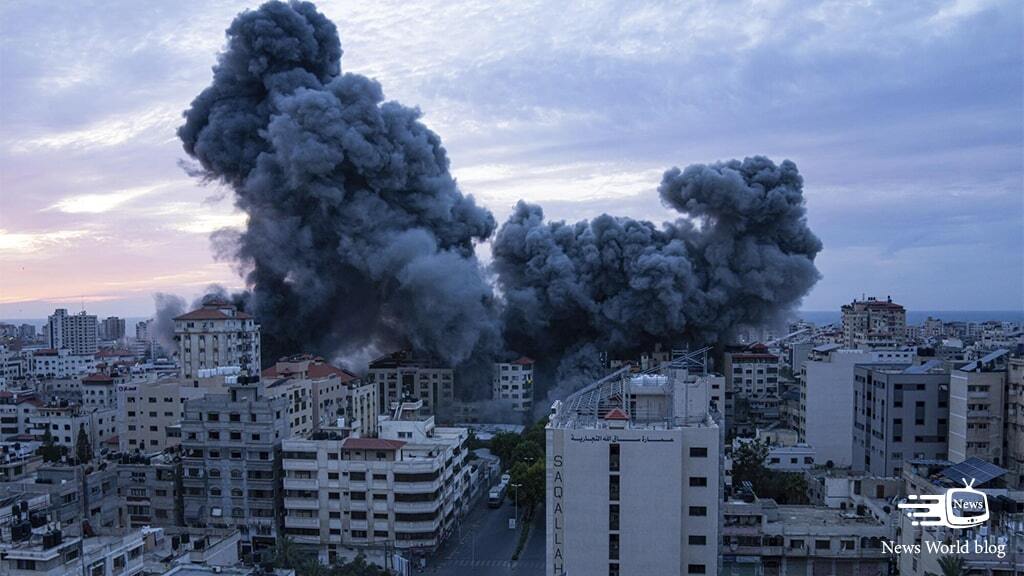The recent exchange of fire between Iran and Israel has raised global concerns about a wider conflict erupting in the Middle East. This article explores the complexities surrounding Israel’s response to Iran’s missile attack and the factors influencing its decision-making process.
Unprecedented Attack on Israel
On April 14th, Iran launched a massive missile and drone attack targeting Israel. This unprecedented act of aggression, believed to be a retaliation for a suspected Israeli airstrike on an Iranian consulate in Damascus earlier in April, marked a significant escalation in tensions between the two nations [1].
Israel’s Defense Systems Thwart Most Attacks
Fortunately, Israel’s sophisticated air defense systems, including the Iron Dome, successfully intercepted the vast majority of the incoming projectiles. This prevented widespread casualties and damage to infrastructure [2]. However, the sheer scale of the attack underscores the evolving military capabilities of Iran and the potential for future conflicts.
Internal Debate on Israel’s Response
Following the attack, Israel’s leadership has been grappling with a critical decision: how to respond? Reports suggest a lack of consensus within the Israeli government [3]. Some advocate for a strong military response to deter future Iranian aggression. Others urge caution, highlighting the risks of further escalating the already volatile situation.
Domestic Pressures and Political Calculations
Prime Minister Benjamin Netanyahu’s domestic political standing appears to be a crucial factor influencing Israel’s response. Recent polls indicate a decline in his popularity, fueled by public discontent with his handling of the ongoing conflict with Hamas in Gaza [4]. A decisive military response against Iran could be seen as a way to bolster his image and regain public support.
The Role of the United States
The United States, a close ally of Israel, has publicly expressed its unwavering support for Israel’s right to self-defense. However, the US has also urged restraint and emphasized its preference for a diplomatic solution [5]. This stance reflects Washington’s desire to avoid being drawn into a wider regional conflict that could destabilize the Middle East and disrupt global energy supplies.
Read More: World on Edge as Iran Targets Israel with Missiles, Global Forces Intervene
The Path Forward: Diplomacy or Military Action?
The international community is united in its call for de-escalation. The UN Security Council has convened emergency talks to urge both Iran and Israel to exercise restraint and engage in dialogue [6]. However, the success of such efforts hinges on addressing the underlying causes of tension, including Iran’s nuclear program and its support for regional proxy groups.
Uncertainties and Potential Consequences
The coming days and weeks will likely be critical in determining the direction of the conflict. If Israel chooses a forceful military response against Iran, it could trigger a devastating escalation. Conversely, a diplomatic approach offers a path towards a more sustainable peace.
The Need for a Long-Term Solution
The current crisis underscores the urgent need for a long-term solution to the conflict between Israeli and Palestinian, a core issue contributing to regional instability. Addressing this issue through a peaceful and sustainable two-state solution could ultimately reduce Iranian influence and contribute to a more stable Middle East.
Conclusion
The future trajectory of the Israel-Iran conflict remains uncertain. While Israel’s response is yet to be determined, the international community has a significant role to play in promoting de-escalation and supporting diplomatic efforts. A peaceful resolution is essential not only for the security of Israel and Iran but also for the stability of the entire Middle East region.
References:
[1] Iran launches hundreds of missiles, drones in first direct attack on Israel | Conflict News | Al Jazeera https://www.youtube.com/watch?v=9gz6EcL5mz8
[2] Global National: April 14, 2024 | How will Israel react to Iran’s drone, missile attacks? – YouTube https://www.youtube.com/watch?v=KMqnkdAi_lw
[3] What does Israel want to do after Iran’s drone and missile attacks? | Israel War on Gaza News | Al Jazeera https://www.aljazeera.com/news/2022/7/26/analysis-increased-israel-iran-confrontations-risk-war
[4] Israel war on Gaza updates: UN chief says Middle East ‘on the brink’ | Israel War on Gaza News | Al Jazeera https://www.aljazeera.com/tag/gaza/
[5] US Says Iran’s Missile Attack on Israel ‘Unacceptable,’ Vows to Work With Allies https://www.npr.org/live-updates/israel-iran-gaza-drone-attack
[6] UN Security Council to Hold Emergency Meeting on Iran Missile Attack
Read More: Iran Launches Direct Attack on Israel: Hundreds of Missiles Intercepted



[…] World Watches: What will Israel’s Response to Iran’s Missile Attack? […]
[…] Related: World Watches: What will Israel’s Response to Iran’s Missile Attack? […]